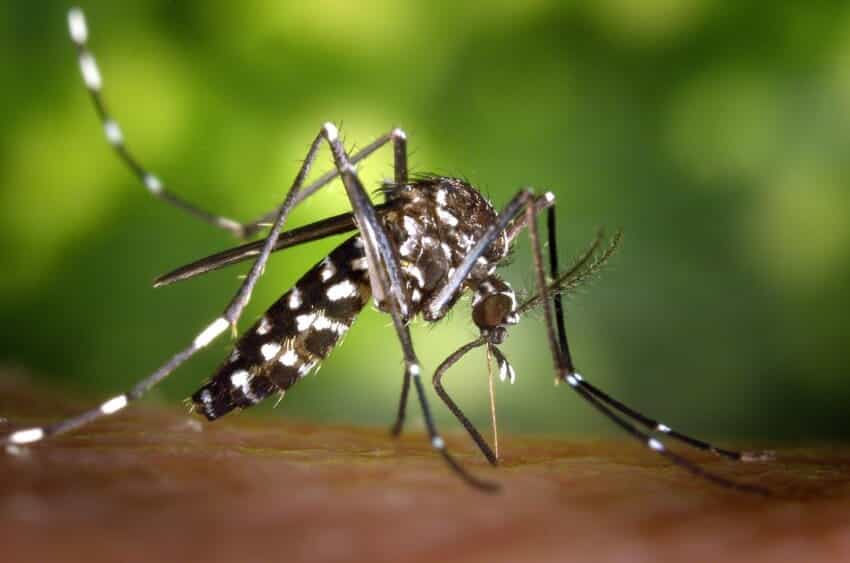Your Cart

Cattail Mosquitoes

What are Cattail Mosquitoes?
 Have you ever noticed that, even after a mosquito treatment, those pesky mosquitoes still come out at dusk, biting for about an hour before disappearing?. In North America, one particular mosquito species remains almost impossible to control. Known as the cattail mosquito, this species, Coquillettidia perturbans (CP), stands out among the thousands of mosquito types in the region.
Have you ever noticed that, even after a mosquito treatment, those pesky mosquitoes still come out at dusk, biting for about an hour before disappearing?. In North America, one particular mosquito species remains almost impossible to control. Known as the cattail mosquito, this species, Coquillettidia perturbans (CP), stands out among the thousands of mosquito types in the region.
This species is commonly found across approximately two-thirds of the United States, excluding the Rocky Mountains and portions of the desert Southwest. It is also native to Canada, ranging from the Atlantic to the Pacific along the US-Canada border and extending a few hundred miles north.
CP is a permanent freshwater mosquito species that depends on natural freshwater swamps and wetlands with emergent aquatic vegetation, such as cattails. CP poses a considerable human health risk as it is a competent vector for West Nile Virus (WNV) and Eastern Equine Encephalitis (EEE).
Cattail Mosquito Life Cycle
CP mosquitoes are unique and challenging to control due to the way their immature stages (larvae and pupae) obtain oxygen. Unlike most mosquito species that have an air horn at the rear of their bodies to breathe air from the atmosphere, CP larvae have a thorn-like structure at the end of their abdomens.
Instead of reaching the water's surface, CP larvae and pupae extract oxygen from the small, hollow roots of aquatic plants. This means they do not need to swim up for oxygen during their immature stages. This adaptation makes it difficult to control them with larvicides, as they are usually shielded from these chemicals. If disturbed, CP larvae and pupae can quickly detach from the plants and retreat into the water's sediment to hide, returning to the plants once the disturbance subsides.
In southern regions, CP typically has two to three generations per year, while in northern regions, only one generation occurs, with larvae overwintering. Adult mosquitoes emerge in early to mid-summer, peaking in abundance from mid-summer to September.
Female CP mosquitoes live longer than males and both sexes feed on plant nectar for carbohydrates. Only females seek blood meals to produce eggs. These females are aggressive biters, though they are not true day-biters. Blood-feeding usually occurs shortly after sunset, with activity decreasing through the night. They may bite during the day if suitable hosts are available in shaded areas. CP mosquitoes are strong fliers, traveling distances of up to 10 km (6 miles) in search of blood hosts, but they are transient and rarely stay in one area long. Adult females will feed on almost any warm-blooded animal, including humans.
Cattail Mosquitoes are Extremely Difficult to Control
Despite our best efforts, barrier treatments with residual insecticides are not as effective as  with other mosquito pest species. What makes them so difficult to control is they are not physically present when we make our applications and do not habitually rest in areas where residual insecticides are placed to control other species.
with other mosquito pest species. What makes them so difficult to control is they are not physically present when we make our applications and do not habitually rest in areas where residual insecticides are placed to control other species.
Unfortunately, it’s not a question of whether the control product is ineffective, it’s the fact that the mosquito is not there when the spraying takes place. If they were, it would control them the same way other mosquito species are eliminated. Also, because they fly in from long distances, they are very strong fliers which allow them to fly above, around, and most importantly without touching or landing on the treated plant materials.
CP does not habitually rest in areas where residual insecticides are placed to control other species. Larvicides are not generally effective in reaching immature CP in quantities that result in mortality regardless of active ingredients. Removal of supporting aquatic plants will help reduce numbers and biting pressure if allowed and practical.
If you have any further questions about Mosquito Hero or mosquito control, please feel free to contact your local Mosquito Hero professional.
 English (CANADA)
English (CANADA) English (USA)
English (USA)